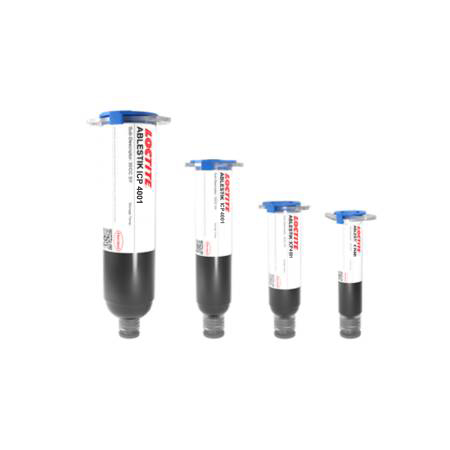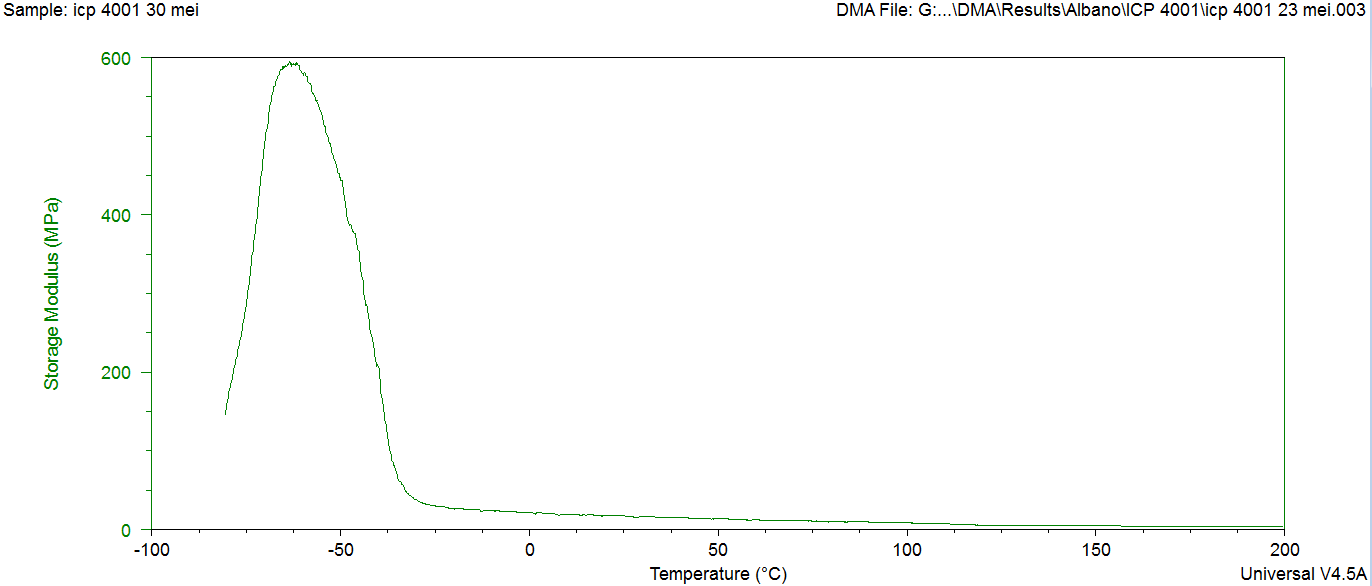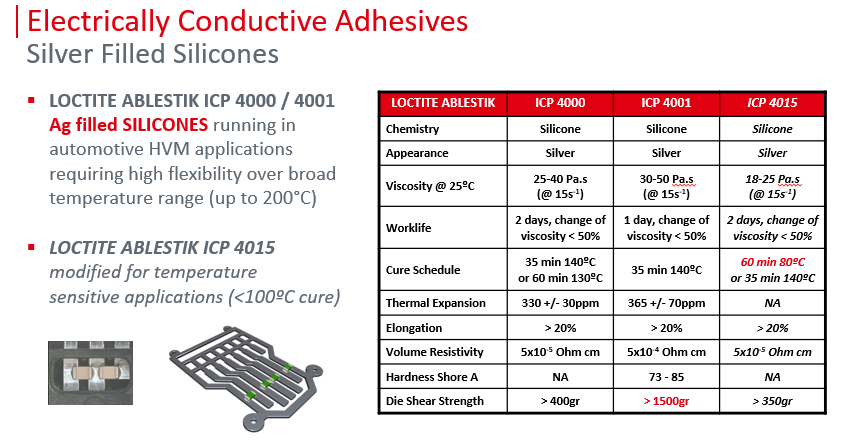LOCTITE ABLESTIK ICP 4001
Harmonization Code : 3506.91.90.99 | Prepared glues and other prepared adhesives, not elsewhere specified or included; products suitable for use as glues or adhesives, put up for retail sale as glues or adhesives, not exceeding a net weight of 1 kg ; Adhesives based on polymers of headings 3901 to 3913 or on rubber; Other ; Other
Main features
- Low outgassing
- Low stress interconnects
- Noble components on noble LF
Product Description
LOCTITE® ABLESTIK ICP 4001 Ag filled, silicone-based, one component, electrically conductive adhesive is recommended for use in attaching devices or mount components in circuit assembly applications. It is specifically designed to provide reliable low stress interconnects exposed to prolonged vibrational energy and high operating temperatures.
LOCTITE® ABLESTIK ICP 4001 has been optimised to maintain its flexibility and survive at operating temperatures as high as 200ºC. it has low outgassing and low bleeding during cure. Compared to ICP 4000 it has better adhesion but slightly worse electrical performance.
LOCTITE® ABLESTIK ICP 4001 common applications include and are not limited to:
- Bonding of noble passive components onto noble terminated lead frames for electronic sensors
- Back contact bonding of c-Si PV cells to conductive Ag tracks
Cure Schedule
- 35 minutes @ 140°C
Technical Specifications
| General Properties | |
| Density Density Volumetric mass per unit | 3.9 kg/m3 |
| Thermal Properties | |
| Thermal Conductivity Thermal Conductivity Thermal conductivity describes the ability of a material to conduct heat. It is required by power packages in order to dissipate heat and maintain stable electrical performance. Thermal conductivity units are [W/(m K)] in the SI system and [Btu/(hr ft °F)] in the Imperial system. | 2.3 W/m.K |
| Electrical Properties | |
| Volume Resistivity Volume Resistivity Volume resistivity, also called volume resistance, bulk resistance or bulk resistivity is a thickness dependent measurement of the resistivity of a material perpendicular to the plane of the surface. | 4.0x10-4 Ohms⋅cm |
| Mechanical Properties | |
| Elongation Elongation Elongation is the process of lengthening something. It is a percentage that measures the initial, unstressed, length compared to the length of the material right before it breaks. It is commonly referred to as Ultimate Elongation or Tensile Elongation at break. | 30 % |
| Physical Properties | |
| Thixotropic index Thixotropic index Thixotropic Index is a ratio of a material s viscosity at two different speeds in Ambient temperature, generally different by a factor of ten. A thixotropic material s viscosity will decrease as agitation or pressure is increased. It indicates the capability of a material to hold its shape. Mayonnaise is a great example of this. It holds its shape very well, but when a shear stress is applied, the material easily spreads. It helps in choosing a material in accordance to the application, dispense method and viscosity of a material. | 2.1 |
| Viscosity Viscosity Viscosity is a measurement of a fluid’s resistance to flow. Viscosity is commonly measured in centiPoise (cP). One cP is defined as the viscosity of water and all other viscosities are derived from this base. MPa is another common unit with a 1:1 conversion to cP. A product like honey would have a much higher viscosity -around 10,000 cPs- compared to water. As a result, honey would flow much slower out of a tipped glass than water would. The viscosity of a material can be decreased with an increase in temperature in order to better suit an application | 40,000 mPa.s |





